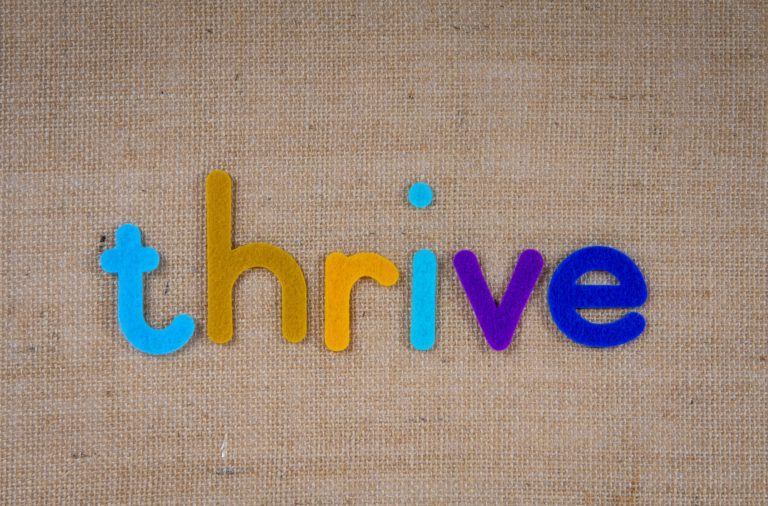Real Estate Agent Mentorship: Your Fast Track to Success
The Harsh Reality: Why Mentorship Makes or Breaks Agents

The real estate industry attracts many with promises of flexible hours and lucrative commissions. However, a harsh reality often gets overlooked: the high failure rate. This isn't due to a lack of hard work or ambition. The issue frequently stems from the disconnect between initial training and the practical skills needed for success. This is where real estate agent mentorship becomes vital.
Bridging the Knowledge Gap
New agents often begin their careers with textbook knowledge but lack the practical experience to handle real-world situations. They might understand the legal side of a transaction but struggle with client communication, negotiation, or market analysis. This gap can be especially tough in competitive markets. New agents frequently require guidance. Finding a real estate mentor can be invaluable. Theoretical knowledge, while important, isn't enough to ensure success.
Many new agents also struggle with lead generation and self-marketing. Standard brokerage training frequently falls short in providing the personalized support needed to build a sustainable business. This leaves many struggling, leading to discouragement and, often, leaving the profession.
One of the most significant hurdles is the high failure rate within the first few years. A staggering 85% of real estate agents fail within their first five years. This is often linked to insufficient guidance and mentorship. Learn more about the importance of real estate mentorship.
The Brokerage Blind Spot
Some brokerages offer basic training, but they often lack the individual attention and ongoing support that a mentorship provides. This is particularly challenging for new agents who need personalized guidance to navigate the complexities of the market. Brokerages often prioritize company growth and sales volume, potentially overshadowing the individual development needs of their agents. This creates a blind spot where essential skills like client management and negotiation are overlooked.
Mentorship: The Game Changer
Effective mentorship provides a crucial support system for new agents, offering practical advice, emotional support, and accountability. A skilled mentor can assist new agents in several key areas:
- Developing effective lead generation strategies
- Mastering negotiation tactics
- Building solid client relationships
- Navigating complex transactions
- Avoiding common pitfalls
This personalized guidance can significantly impact an agent's trajectory, determining whether they thrive or simply survive in the competitive real estate world. A mentor not only imparts knowledge but also cultivates confidence and resilience – qualities essential for long-term success in this demanding field. This is why seasoned agents consistently stress the importance of finding a mentor early on.
Finding Your Perfect Match: Mentorship Models That Work
Not all real estate agent mentorship programs are the same. Choosing the right structure is key to maximizing your time and resources. Let's explore the most popular mentorship models and how they can influence your real estate career.
One-on-One Coaching: Personalized Guidance
This traditional model pairs you with a seasoned agent who provides individualized attention and support. One-on-one coaching offers tailored feedback and directly addresses your specific strengths and weaknesses. However, this personalized approach can require a significant time commitment from both the mentor and mentee.
Group Programs: Strength in Numbers
Group programs create a collaborative learning environment where multiple mentees learn from one or more mentors. This model encourages peer learning and the sharing of different experiences and perspectives. For example, in a group setting, you can learn from the successes and challenges of others, expanding your understanding of the market. Group programs are often more budget-friendly than individual coaching.
Formal Brokerage Programs: Structured Support
Many brokerages offer structured mentorship programs for their agents. These programs typically integrate training on specific company tools and resources, promoting consistency within the brokerage. A potential drawback is a limited focus on individual agent needs.
Independent Coaching Relationships: Tailored Expertise
Independent coaches frequently specialize in niche areas, such as marketing, lead generation, or negotiation. This allows you to focus your mentorship efforts on developing specific skills. For example, if lead generation is a challenge, you can seek an independent coach with a proven track record in that area. This focused approach can lead to rapid improvement in particular skill sets. Real estate mentorship isn't limited to individual relationships; it also includes group mentoring, apprenticeships, and internships. Group mentoring creates a collaborative learning space with diverse perspectives and shared experiences. Structured programs like NAR Spire pair experienced agents with newer ones, facilitating regular meetings to address specific questions and business goals. Learn more about finding a mentor at Agent Advice.

To help you compare the different options, the following table outlines the key features of each mentorship model.
Comparison of Real Estate Mentorship Models
This table compares different mentorship formats available to real estate agents, highlighting their structure, benefits, time commitment, and ideal career stage.
| Mentorship Type | Structure | Time Commitment | Cost Structure | Best For |
|---|---|---|---|---|
| One-on-One Coaching | Individualized sessions with an experienced mentor | High | High | Agents seeking personalized guidance and focused skill development |
| Group Programs | Collaborative learning environment with multiple mentees and one or more mentors | Moderate | Moderate | Agents who thrive in group settings and value peer learning |
| Formal Brokerage Programs | Structured training integrated with company tools and resources | Moderate | Varies (often included with brokerage fees) | Newly affiliated agents seeking integration within a brokerage |
| Independent Coaching Relationships | Specialized coaching focused on specific skill sets | Moderate to High | Varies | Experienced agents looking to refine specific skills |
As this table illustrates, each mentorship model offers unique advantages. Choosing the right model depends on your individual preferences and goals.
Choosing the Right Fit
The best mentorship model for you depends on your learning style, business goals, and available resources. One-on-one coaching provides focused attention, while group programs offer diverse insights. Brokerage programs offer integrated training, while independent coaching allows for specialized expertise. Carefully evaluating these factors will help you select the best real estate agent mentorship model to achieve your career aspirations.
Beyond Production Numbers: Finding a Mentor Who Delivers

High sales figures don't guarantee effective mentorship. The real estate industry has plenty of top performers who struggle to share their expertise with others. Choosing the agent with the highest sales volume as your mentor may not be the best approach for your real estate journey.
Qualities of an Exceptional Mentor
What distinguishes a truly great mentor? Exceptional mentors blend practical experience with strong communication skills and a sincere desire to see others thrive. They are patient, insightful, and able to tailor their guidance to individual learning styles.
For instance, a skilled mentor understands if you learn best through hands-on involvement, visual learning, or direct conversations. This adaptability ensures that the mentorship caters to your specific needs.
Evaluating a Mentor's Track Record
When assessing potential mentors, look beyond their personal sales achievements. Consider their experience guiding other agents. Have their mentees experienced significant growth? Do they have a strong reputation for developing talent within the real estate sector? These questions reveal a mentor's true impact.
Also, examine their approach. Do they provide structured programs, or do they favor a more informal style? The best choice depends on your personal learning preferences.
Red Flags to Watch Out For
Certain warning signs can indicate a mentorship relationship that's unlikely to succeed. A mentor who is constantly focused on self-promotion or prioritizes their own achievements over your growth is unlikely to offer the support you require.
Similarly, a mentor hesitant to share their insights or resources might hinder your progress. A lack of clear communication or defined expectations is another significant red flag. Open communication and a shared understanding of goals are crucial for a successful mentorship.
Strategic Questions to Ask Potential Mentors
To truly understand a potential mentor's value, ask focused questions that go beyond surface-level claims. Inquire about their mentorship philosophy, their strategies for helping agents overcome obstacles, and their expectations for the relationship. How do they define success in a mentorship, and what skills do they prioritize?
These questions will provide insights into their style. How they respond reveals their communication style and willingness to invest in you. A direct and respectful approach, expressing genuine interest and outlining your objectives, is more likely to result in a positive response. This initial interaction sets the tone for the entire relationship.
The ROI Revolution: Quantifying Mentorship's Business Impact

Let's move beyond simply praising mentorship and delve into the hard numbers. We'll explore how a mentor's guidance can significantly impact a real estate agent's bottom line. Using data and practical examples, we'll illustrate how mentorship often leads to improved performance in key business areas.
Faster Transactions, Stronger Client Relationships
Mentored agents, equipped with valuable insights and practical advice, often close their first deals much quicker. Studies show they can finalize transactions 47% faster than their non-mentored counterparts.
Furthermore, they tend to build stronger, more enduring client relationships that last 2.3 times longer. This increased client retention contributes significantly to long-term business growth and creates a more predictable income stream.
These combined benefits allow mentored agents to achieve profitability sooner, often reaching important income milestones months ahead of their peers. This early success instills confidence and sets a positive course for their real estate careers.
Boosting Key Performance Indicators
Formal mentorship programs are especially effective in boosting crucial business metrics. The guidance provided significantly improves lead conversion, maximizing the return on marketing investments.
Mentors also assist in cultivating robust referral networks, leading to a significant rise in referral generation. Additionally, they equip agents with the skills to negotiate commissions effectively, improving commission retention rates and ultimately boosting their income.
These improvements create a stronger financial foundation and accelerate business growth. The positive impact of mentorship extends beyond individual agents, benefiting the entire real estate ecosystem. Just as 98% of Fortune 500 companies utilize mentorship programs for professional development, the real estate industry can leverage this powerful tool to enhance resilience and overall performance. Learn more about the impact of mentorship.
Calculating Your Potential Mentorship ROI
Determining the return on investment (ROI) of a mentorship program can be challenging, yet crucial for understanding its true value. Comparing the performance of mentored and non-mentored agents within the same brokerage offers valuable insights. This involves analyzing metrics like average transaction value, the number of transactions closed, and client retention rates.
The following table presents a comparison of key performance metrics between mentored and non-mentored agents:
Performance Metrics: Mentored vs. Non-Mentored Agents
This table presents statistical data comparing business outcomes between agents with structured mentorship and those without formal guidance.
| Performance Metric | Agents with Mentorship | Agents without Mentorship | Percentage Difference |
|---|---|---|---|
| Time to First Transaction | 6 Months | 11 Months | -45.5% |
| Average Client Relationship Length | 3 Years | 1.3 Years | +130.8% |
| Lead Conversion Rate | 20% | 10% | +100% |
| Referral Generation (per year) | 10 | 3 | +233.3% |
| Average Commission Retention Rate | 90% | 80% | +12.5% |
As the table illustrates, mentored agents often experience significant improvements in key performance indicators. This translates to faster transaction times, stronger client relationships, and ultimately, increased earnings.
Consider a hypothetical example: two new agents join a brokerage. One agent participates in a mentorship program, while the other does not. After one year, the mentored agent closes 10% more deals and enjoys a 15% higher client retention rate. These improvements directly increase commission earnings. This example showcases how mentorship can generate substantial financial gains. By projecting these improvements over several years, we can begin to grasp the long-term financial benefits of mentorship for real estate agents.
From Advice to Action: Maximizing Your Mentorship ROI
Securing a mentor is just the first step. Maximizing the return on your mentorship investment requires proactive engagement and a strategic approach. This means understanding how to get the most value from your mentor's guidance, implementing their feedback, and tracking your progress.
Preparing for Mentorship Meetings: Asking the Right Questions
Effective mentorship depends on asking insightful questions that bring valuable information to light. Instead of general inquiries, focus on the specific challenges you're facing. For example, if you're struggling with lead conversion, ask your mentor about proven strategies they've used to overcome similar hurdles.
Preparing a list of questions before your meeting ensures you cover all the important topics during your mentorship sessions. This preparation also shows your commitment to the relationship and makes the most of your mentor's time. Focus on questions that address your immediate business needs and align with your long-term career goals.
Implementing Feedback: Turning Advice into Action
Receiving feedback is only half the process. The true benefit comes from putting that feedback into action. This often involves breaking down complex advice into smaller, manageable steps. Create a system for tracking the implementation of suggestions and regularly review your progress with your mentor. This accountability strengthens learning and speeds up growth.
Tracking Your Progress: Measuring the Impact of Mentorship
To truly grasp the influence of mentorship on your business, it's important to understand how to measure work performance. Measuring work performance helps quantify the impact of your mentor's guidance. Track key performance indicators (KPIs) such as lead conversion rates, average transaction value, and client retention. Regularly review these metrics with your mentor to evaluate the effectiveness of your strategies and pinpoint areas for improvement. This data-driven method ensures your mentorship generates tangible results.
The Importance of Communication and Evolving Relationships
Maintaining regular communication is vital for a productive mentorship. Consistent check-ins, even short ones, keep the momentum going and prevent misunderstandings. Also, be prepared to respectfully question advice that doesn't fit your business model. A strong mentorship encourages open communication and allows both parties to share their views.
As you develop, your mentorship needs will change. Be ready to shift from intensive guidance to a more collaborative partnership. This progression lets you utilize your mentor's expertise in new ways and build a lasting professional relationship.
Your Mentorship Blueprint: Creating An Implementation Plan
Turning your real estate knowledge into action requires a structured mentorship plan. This section offers a framework to build and implement your personalized plan, no matter where you are in your career.
Assessing Your Needs: A Foundation For Success
Before you start looking for a mentor, identify your specific needs and goals. What areas of your business could use improvement? Are you struggling with lead generation, client communication, or negotiation tactics?
Knowing your strengths and weaknesses helps you find a mentor with the right expertise. For example, if you're a new agent, concentrate on fundamental skills like client prospecting and transaction management. Experienced agents might seek mentorship to expand into new markets or improve advanced negotiation skills.
Researching Potential Mentors: Finding The Right Fit
Start your search by researching potential mentors in your local market. Explore online resources like LinkedIn and industry publications. Attend local real estate events and network with seasoned professionals.
Consider different mentorship models, including one-on-one coaching, group programs, and formal brokerage initiatives. Each model offers unique advantages. Look for mentors who are genuinely committed to helping others succeed and have a proven track record.
Making Compelling Outreach: Securing A Mentor
Once you’ve identified potential mentors, craft a compelling message. Highlight your goals and explain why you want to learn from them specifically. Personalize your message and avoid generic templates. Show genuine interest in their experience and expertise.
For example, mention a specific accomplishment of theirs or highlight a shared connection. A thoughtful message increases your chances of a positive response.
Structuring Initial Conversations: Setting Expectations
The first conversation with a potential mentor is key. Prepare insightful questions to understand their mentorship philosophy and approach. Discuss your expectations for the relationship and potential time commitments. For example, ask about their preferred communication methods and meeting frequency.
Building Your Mentorship Plan: A Step-by-Step Guide
- Self-Assessment: Define your strengths, weaknesses, and areas where mentorship can make the biggest impact.
- Mentor Research: Identify potential mentors whose expertise aligns with your needs.
- Outreach Strategy: Develop a personalized approach for contacting potential mentors.
- Initial Conversations: Structure your first conversations to set clear expectations and build rapport.
- Mentorship Agreement: Create a formal or informal agreement outlining goals, expectations, and timelines.
- Progress Tracking: Implement systems for tracking progress and evaluating the mentorship's effectiveness.
Navigating Mentorship Transitions: Evolving Relationships
As you grow, your mentorship needs will change. Be ready to move from intensive guidance to a more collaborative partnership. This shift lets you use your mentor's expertise in new ways and creates a mutually beneficial relationship.
Regularly evaluate the mentorship and adjust your approach as needed. This proactive approach maximizes the relationship's long-term value.
Building a network of advisors who support different aspects of your business growth is important. Mentorship isn’t one-size-fits-all. Different mentors can offer unique insights, enriching your overall professional development. Embrace the dynamic nature of mentorship to reach your full potential.
Ready to advance your real estate career with expert guidance? Explore the mentorship opportunities at Ashby & Graff Careers and discover how our agent-centric approach can help you achieve your business goals.






